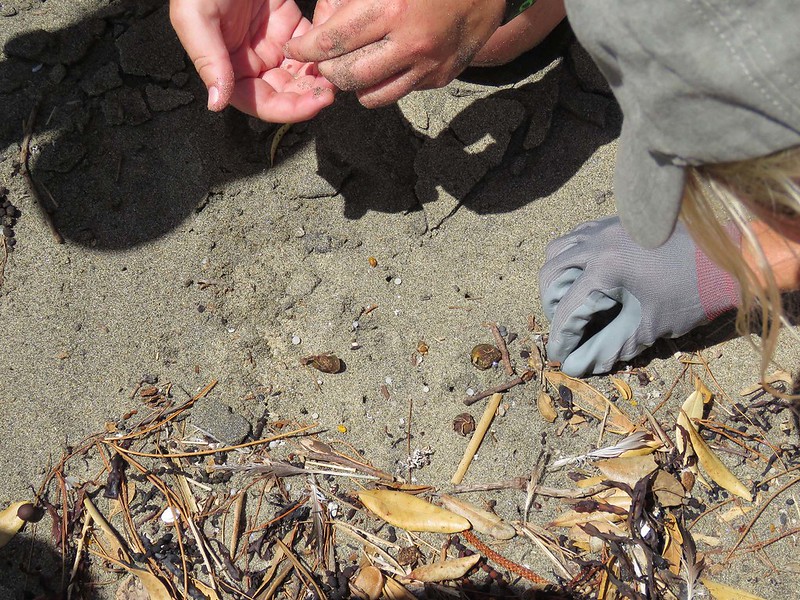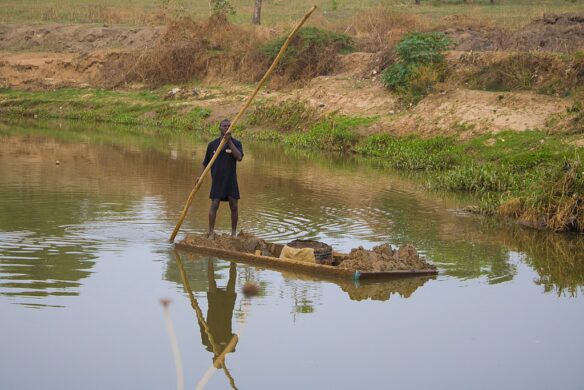Excerpt:
More than 170tn plastic particles are floating in the world’s oceans – and millions of them wash up on our shores
Squatting in the strandline as a storm brewed on the horizon, I combed through the debris with tweezers. I spotted my first nurdle almost immediately. Covered in sand, the pale plastic pellet blended almost perfectly into the background. Next to me, a woman scraped the top layer of sand away and plopped it in a bucket of seawater. As she stirred, several nurdles drifted to the surface.
“It’s impossible to make a dent,” I thought. Despite removing more than 3,000 pieces of microplastic during our cleanup, thousands more winked at us from the sand as we left Camber Sands beach. These tiny pre-production plastic pellets, called nurdles, are littering UK beaches in such numbers that beach cleanups can’t keep up.
“I think removing all the nurdles would be an impossible task. They’re everywhere,” says Andy Dinsdale, the founder of the East Sussex-based environmental organisation Strandliners.
Nurdles are tiny plastic pellets – around the size of a lentil – made from fossil fuels, which are used to make plastic products. Huge containers of them are transported around the world by road, rail and ship before they are melted down and made into all the plastic items we use in our day-to-day lives.
Christy Leavitt is the plastics campaign director at the conservation group Oceana. She agrees that removing all the plastic pellets from our oceans and coastlines is “simply not possible”. Studies have shown there are more than 170tn plastic particles floating in the world’s oceans.
So, why even bother with cleanups? For Dinsdale and his team, cleanups help to gather data, to illustrate how bad the nurdle problem really is. Evidence from cleanups has led to legislation such as the plastic bag tax and a ban on single-use items such as cotton buds.
Organising them without recording the data would mean “we’ll be doing that for the rest of our lives”, says Beverley Coombs, a Strandliners volunteer. “If you just pick, bag and bin, nobody knows what the rubbish is. How on earth can you stop it coming back?”
Nurdle spills can occur when cargo ships capsize or drop containers overboard to preserve life during stormy seas – something allowed by international maritime law. Once in the ocean, these pellets can kill marine life and have catastrophic effects on the environment.
Dani Whitlock, a project officer at the Scottish charity Fidra says nurdle pollution rates are increasing despite voluntary industry measures that attempt to prevent it. She attributes these pellet spills to mismanagement, poor handling and lack of accountability…









